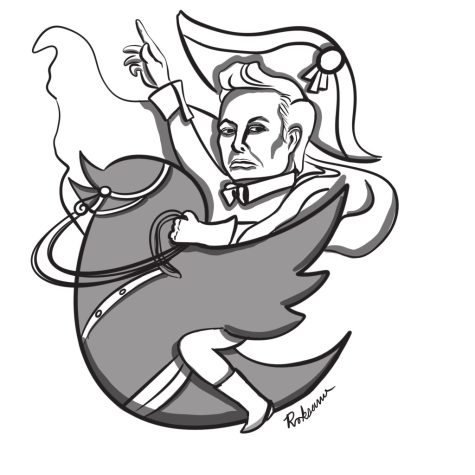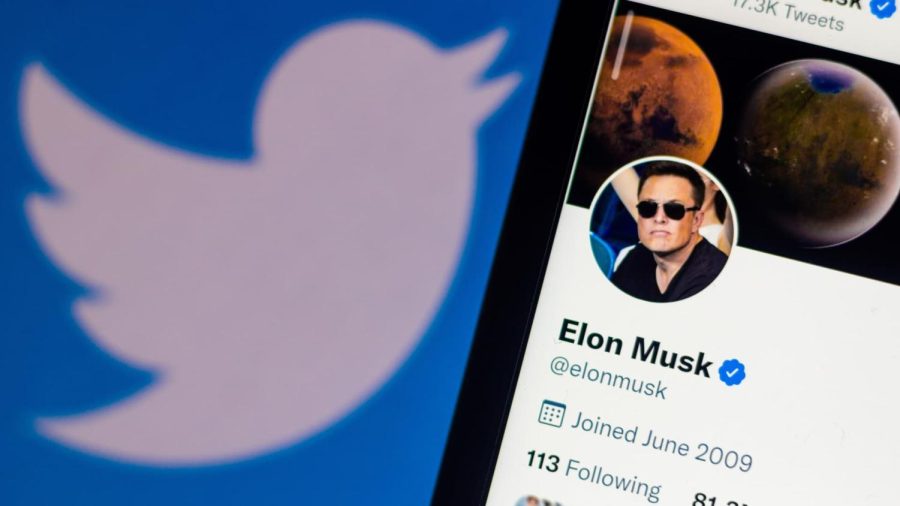Musk’s Twitter takeover promises ideological diversity
Musk’s changes could invite respectful debate on a platform that has historically been dominated by liberal viewpoints
Elon Musk’s takeover of Twitter has garnered mixed reviews, but it may symbolize a shift toward broader ideological diversity, writes Conor Metzger.
November 15, 2022
It finally happened. After months of speculation and uncertainty, Elon Musk has bought the social media company Twitter. Musk cemented the move on Oct. 26, posting a video of himself walking into Twitter headquarters holding a sink with the caption “let that sink in.”
If you’ve actually been on Twitter this past week, you’ll know that the response to Musk’s take-over has been mixed. Some people are worried that the site will become a new 4Chan, where anything goes and there are little to no repercussions for violent or hateful messages. Others see a “win” for free speech and the hope for a better future where people can say what they want without fear of being censored.

Both of these views are understandable. Despite his showmanship, I believe Musk recognizes that he must prove his purchase is for the better. He has made it clear that he will not be making any changes to Twitter’s allowed content until he puts together a diverse council to advise him on what changes should be made — the key word here being “diverse”. In the past, Twitter has highlighted the diversity of race, gender, nationality and similar factors among employees. However, they have had an issue with a prevalent liberal ideological leaning. When Musk says he wants “diversity”, he is also referring to a diversity of ideology.
This is one of the principal reasons I have been a fan of Musk’s decision to buy Twitter. The social media site has had a large issue in over-moderating conservative opinions while not focusing too much on liberal ones. I don’t think this is due to any sort of conspiracy —rather it just happens that people who work in technology have a liberal bias. This in and of itself is not an issue, as we all have our own biases. A good leader and a good company recognizes an issue like that and tries to implement a diversity of thought. This is what Musk is doing.
However, Musk has also laid off a large portion of the Twitter staff. He believes there to be an infestation of a “woke” culture that is damaging Twitter’s discourse. His solution is to start from scratch and impose extensive, cost-saving layoffs. While it may be unsettling to see multiple people lose their jobs, we should not see this as an uncommon occurrence.
Musk is a businessman with radically different views than Twitter’s previous leadership. No matter your ideological leanings, it should be recognized that when you take over a company, you need to make sure workers are on your side in favor of productivity and growth. Musk cannot come in and have to spend every day fighting with the employee Slack channel. A Musk Twitter would not have been a conducive environment to those workers anyway, nor would those workers create a healthy environment for Musk. Technology is a growing industry, and it seems probable that these developers and engineers will find other jobs.
The growth that Musk is trying to create has also sparked a lot of concerns. One set of concerns comes from advertisers, who are worried about how their brand will look if one of their ads is seen next to a hateful comment. While Musk posted a tweet on Oct. 27 promising that Twitter will not become a “free-for-all hellscape,” there is justifiable concern. A lot of companies are choosing to suspend their Twitter advertising, at least until they see what direction the company takes. This does not bode well for Musk, who has taken on a considerable amount of debt in order to privatize the company. There is a lot of doubt about whether Silicon Valley’s biggest tech multibillionaire has what it takes to work both sides of the aisle and see a return on his investment.
But maybe he will.
Elon Musk is not some conservative boogeyman who wants his site to be a place where racism and sexism runs rampant. Rather, he is someone who sees issues analytically and has noticed that the spectrum of viewpoints on Twitter is not reminiscent of our society at large. If social media is supposed to represent a microcosm of our culture, then let it be so. By giving Musk the benefit of the doubt, we may be able to recreate a platform of debate that has been lost for some time. We should not assume that Twitter will become a “hellscape”, but make sure that we can participate in good, meaningful debate with each other on a platform that could be just the perfect place to do so.






















